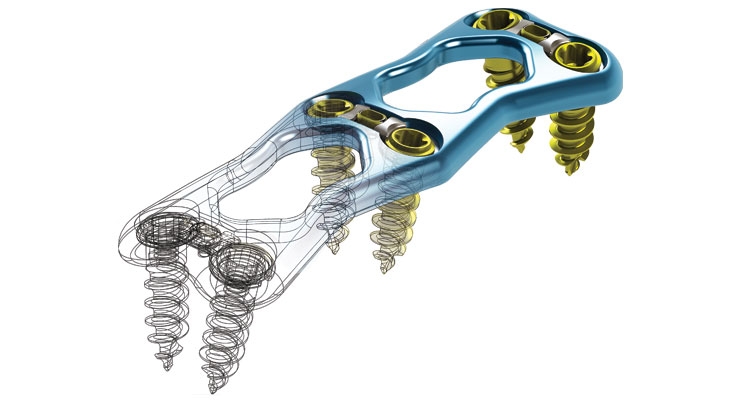Implant Disruption | Additive manufacturing and 3D printing technologies provide alternative fabrication strategies for orthopedic implants.
By Mark Crawford, Contributing Writer | May 19, 2017
Perhaps no other industry has such a locked-in growth market as orthopedic manufacturers do with the retiring baby boomer generation. Boomers have more dispensable income than previous generations, as well as high expectations for active, rewarding post-retirement lifestyles—which means joint replacements for many of them. “Implant manufacturing continues to grow as more and more baby boomers get their joints replaced,” said David Neal, president and founder of STAT Design LLC, a Morris Plains, N.J.-based orthopedic design and development consulting firm. “Many patients had their devices implanted 20-plus years ago—this group is driving the revision total joint market. The challenge now is to manufacture high-quality implants with the latest technologies, materials, and coatings, while still containing healthcare costs.” This can indeed be a challenge.
Overall, medical device manufacturers (MDMs) are reluctant to change their proven methods and technologies. In order to stay relevant and competitive, however, they must evolve and keep pace with new design strategies and manufacturing techniques, especially additive manufacturing and 3D printing, which have taken hold in spinal implant manufacturing. 3D printing allows engineers to go beyond conventional manufacturing methods to design new implants with pinpoint precision that optimize pore size, porosity, geometry, and surface texture to help promote fusion. These new design and manufacturing capabilities make the orthopedic market even more competitive and, in some cases, level the playing field somewhat for startups and younger companies with innovative new products.
Despite the growing market for orthopedic products and the exciting new technologies for making them, not every product category is “hot.” Jack Neenan, vice president of sales and business development for Phillips Precision Medicraft, an Elmwood Park, N.J. based contract manufacturer of advanced orthopedic implants, instrumentation, and sterilization delivery systems, cases, and trays, indicated that large joint implant manufacturing has become commoditized and faces tighter pricing pressures. “In contrast,” he said, “we are seeing more growth in biologics, specialty coatings, and spine and extremity products.” Read More>>>

